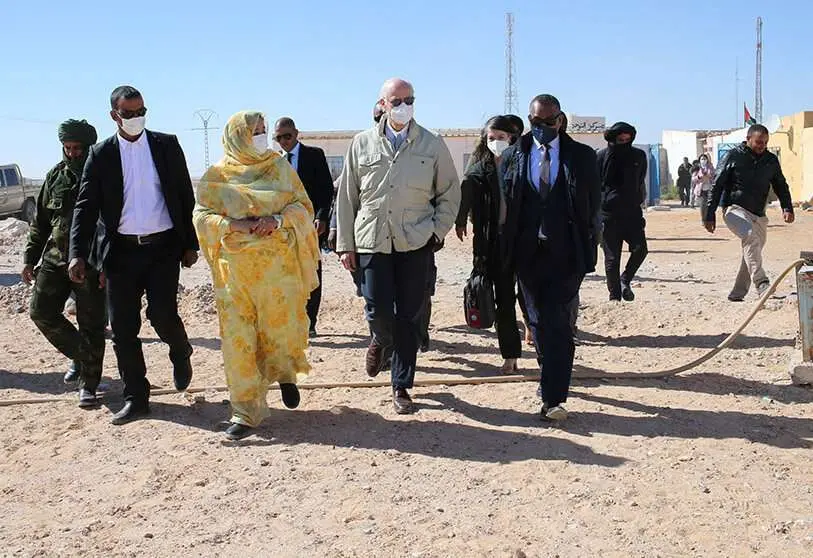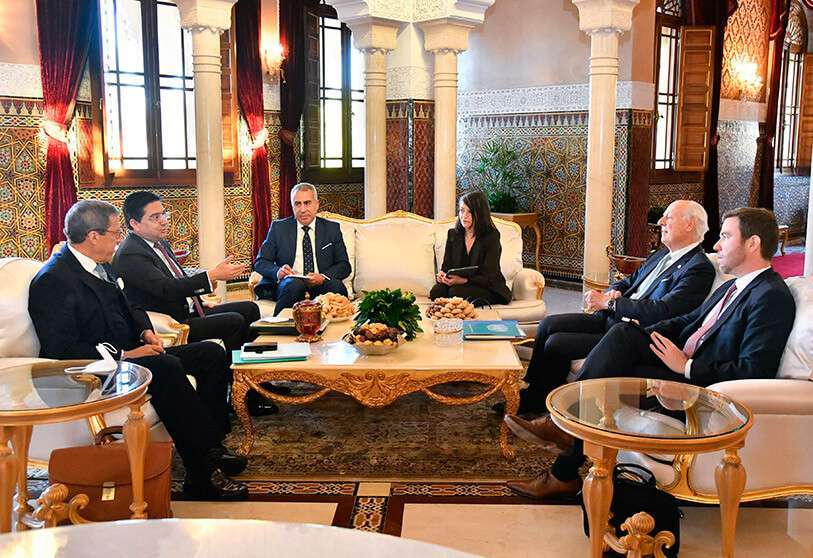El enviado de la ONU para el Sáhara Occidental visita los campamentos saharauis en Argelia

Staffan de Mistura, UN special envoy for Western Sahara, began his visit to the Saharawi camps in Tindouf in Algeria on Saturday with a view to revitalising the negotiation process between the opposing parties to resolve the Saharawi conflict.
In this first stage of his trip, De Mistura met with the Polisario Front delegation in charge of the negotiations. A Polisario Front that defends the holding of a referendum on independence for the Saharawi people, as it has been doing since Spain's departure from the territory as a colonial power more than 40 years ago.
After this trip, Staffan de Mistura will draw up his report to address the UN Security Council, made up of the main world powers, next October.
The situation of the Sahrawi refugees in the Tindouf camps is difficult and complicated by the harsh living conditions there, and there are still calls for a solution to bring about the regrouping of all those affected in the Western Sahara area.

The Italian-Swedish diplomat arrived in Tindouf early this morning and began this Saturday the agenda set for his visit, which included meetings with civil society and with young Saharawis and which will end this Sunday with a meeting with the leader of the Polisario Front, Brahim Ghali. De Mistura also met on Saturday with a group of women led by Chaba Seini, secretary general of the National Union of Saharawi Women.
Jatri Aduh led the Polisario team to talk to De Mistura, who is trying to get more data and information by deepening "consultations with all parties", as reported by EFE news agency. The UN envoy already visited the refugee camps last January and is now trying to get the negotiation process for peace in Western Sahara back on track after the ceasefire decreed in 2020 between Morocco and the Polisario Front did not work as expected.
Last July, De Mistura visited Rabat, although not many details of the visit were given, and he cancelled an earlier visit to the Tindouf camps that was planned to access Western Sahara.

The Saharawi question continues to require a solution because a problem that has remained unresolved for nearly five decades since Spain's departure from Western Sahara and the end of the colonial era has remained unresolved. Morocco proposes a formula of broad autonomy for the territory under the sovereignty of the Alawi kingdom, respecting UN resolutions, which has received significant international support, Especially since December 2020, when Donald Trump's US administration recognised the Moroccan sovereignty of the Sahara in exchange for the North African country establishing full diplomatic ties with Israel along the lines of the Abraham Accords signed in September 2020, under which several important Arab countries such as the United Arab Emirates and Bahrain established political relations with the Israeli state with the aim of socially and economically developing the Middle East and pacifying the region by confronting hostile common enemies such as the Islamic Republic of Iran. Following the American line, support for Morocco came from other nations such as the United Arab Emirates, the United Kingdom, Germany and Spain.
Opposing this position is that of the Polisario Front, which continues to call for a referendum on Sahrawi independence supported by Algeria, Morocco's great North African rival, a country with which it broke off relations a year ago due to major political differences, such as the one related to Western Sahara.








